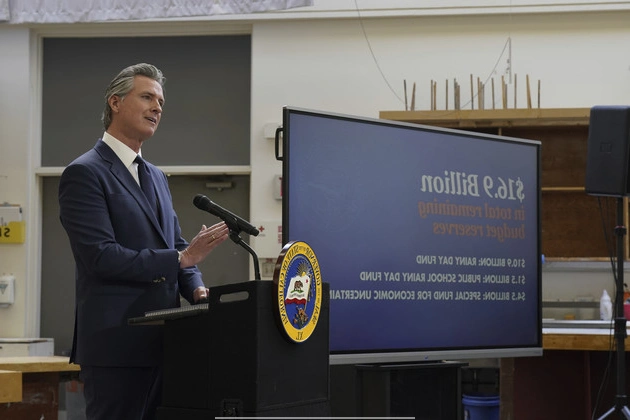
California Governor Gavin Newsom is facing backlash for his plan to scale back free health insurance for undocumented immigrants in an effort to address the state’s budget deficit. The proposal, set to take effect in 2026, will exclude adults 19 and older from enrolling in the Medi-Cal program, while children and teens remain eligible.
Implications of the Proposal
While Newsom assures that current Medi-Cal beneficiaries will not lose coverage, those aged 19 and above will have to pay a $100 monthly premium starting in 2027. The projected savings of $5.4 billion by 2028 indicate the significant financial impact of this policy shift.
Political Response and Criticisms
The governor’s retreat on this issue, previously hailed as a cornerstone of universal healthcare in California, has drawn criticism from both ends of the political spectrum. Conservatives view it as a necessary cost-saving measure, while Democrats and healthcare advocates argue against compromising coverage for vulnerable populations.
Newsom attributes the decision to economic challenges exacerbated by President Trump’s policies, emphasizing the need for fiscal prudence in light of a projected $10 billion deficit. The tension between balancing healthcare access and budget constraints underscores the complexity of governing in turbulent times.
Public Opinion and Future Prospects
Surveys indicate mixed sentiments among Californians regarding healthcare for undocumented immigrants, with some supporting continued coverage despite budgetary constraints. The ongoing debate reflects broader discussions on healthcare equity and the role of state resources in meeting diverse healthcare needs.
As Governor Newsom navigates the intricacies of budget negotiations and policy adjustments, the impact of his healthcare proposal will reverberate across the state’s healthcare landscape, shaping the future of access and affordability for all residents.











